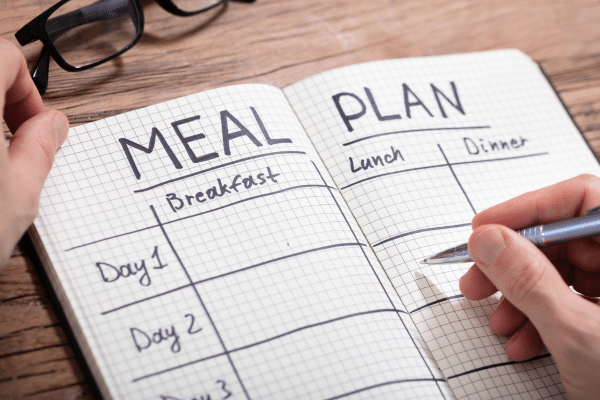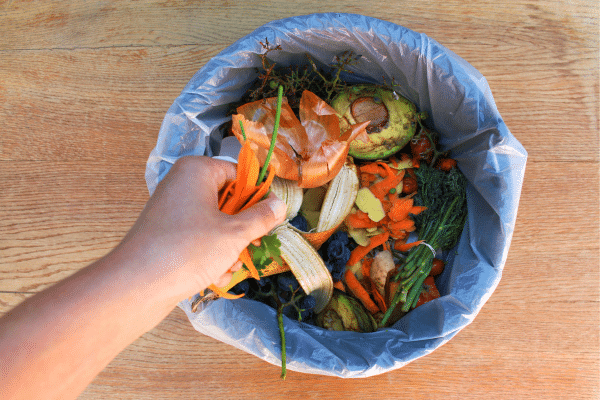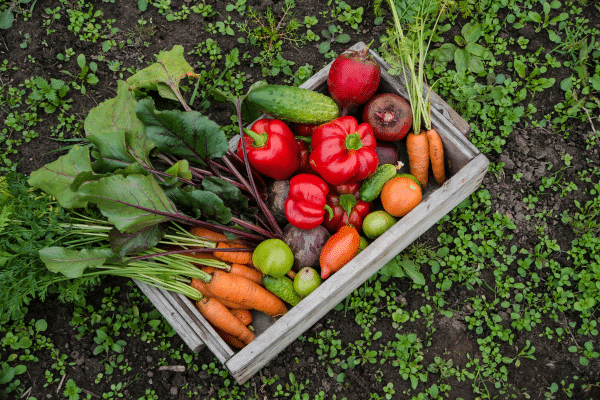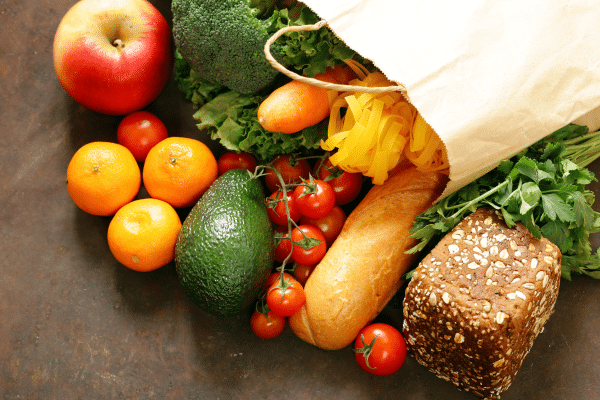Eating healthily on a budget often seems like a daunting task, but it’s entirely achievable with the right strategies. This guide explores eight practical ways to maintain a nutritious diet without straining finances. From planning meals in advance to leveraging sales and coupons, these methods are designed to help navigate the challenges of affordable, healthy eating. Each tip provides a blend of cost-effectiveness and nutritional value, ensuring a balanced approach to diet and budget.
Contents
Plan Your Meals

Meal planning is a cornerstone of eating healthy on a budget. By planning meals ahead of time, it becomes easier to make informed grocery purchases, avoiding costly impulse buys and ensuring a balanced diet. This approach allows for a clear understanding of the week’s food needs, helping to streamline shopping trips and minimize unnecessary spending. Additionally, meal planning is conducive to variety in diet, preventing the monotony of eating the same foods repeatedly.
Implementing effective meal planning starts with setting aside time each week to decide on meals. Consideration of personal schedule, nutritional needs, and food preferences is vital in creating a diverse and realistic menu. Once the menu is set, compiling a detailed shopping list ensures that only necessary items are bought, reducing the likelihood of overspending. This strategy not only saves money but also time, making it easier to stick to a healthy eating plan despite a busy lifestyle.
Shop Sales And Use Coupons

Shopping sales and using coupons is an excellent strategy for eating healthy on a budget. It requires staying informed about local grocery store deals and actively seeking out coupons for healthy foods. This approach can lead to significant savings on quality, nutritious items that might otherwise be too expensive. It’s important to remember that sales and coupons are not limited to processed foods; many stores offer discounts on fresh produce, lean meats, and whole grains.
To maximize the benefits of this strategy, it’s beneficial to subscribe to newsletters from favorite grocery stores or use apps that consolidate sales and coupons. This proactive approach ensures that no deals are missed. However, it’s crucial to stay disciplined and only purchase items that fit into the planned meals for the week. This prevents buying unnecessary items just because they are on sale, keeping both the budget and meal plan on track.
Reduce Food Waste

Reducing food waste is a crucial aspect of eating healthy on a budget. By ensuring that all purchased food is used effectively, money is saved and environmental impact is minimized. Understanding how to store different types of food properly extends their shelf life and preserves their nutritional value. For instance, storing bread in the refrigerator might prevent mold, but it can also cause it to dry out faster. Learning the best storage methods for various foods can lead to less waste and more savings.
Creative use of leftovers is another essential aspect of reducing food waste. Leftovers can be transformed into new meals, ensuring that nothing goes to waste. This not only saves money but also adds variety to the diet. For example, roasted vegetables from dinner can be used in a lunchtime salad the next day. Regularly checking the fridge and pantry to use items close to their expiration dates helps in planning meals around what is already available, thus reducing waste and expenditure.
Grow Your Own Food

Growing your own fruits, vegetables, and herbs can be a rewarding and cost-effective way to eat healthy. Even those with limited space, such as apartment dwellers, can grow herbs on a windowsill or use container gardening for small vegetable plants. This not only reduces grocery bills but also ensures the freshness and nutritional value of the produce. Moreover, gardening can be a therapeutic and enjoyable hobby, adding another layer of value to the practice.
Starting a garden doesn’t require extensive knowledge or resources. Beginners can start small, perhaps with easy-to-grow herbs or lettuce, and gradually expand as they gain confidence and experience. Utilizing community resources like local gardening clubs or online forums can provide valuable tips and support. The key is to start with what is manageable and enjoyable, gradually integrating home-grown produce into meals for a healthier, more budget-friendly diet.
Cook At Home

Cooking at home is a highly effective way to eat healthily and save money. Preparing meals from scratch allows complete control over the ingredients, ensuring that they are nutritious and within budget. Home-cooked meals typically contain fewer calories and less sodium, sugar, and fat compared to restaurant meals or processed foods. Additionally, cooking can be a fun and rewarding skill to develop, offering a creative outlet and the satisfaction of making something delicious and healthy.
To make home cooking more feasible, it’s helpful to build a collection of simple, quick recipes that require minimal ingredients. This reduces the time and effort needed to prepare meals, making it more likely to cook at home regularly. Batch cooking or meal prepping can also be a time-saver, where meals or meal components are prepared in advance for the week, streamlining the cooking process and making it easier to maintain a healthy diet on a busy schedule.
Buy In Bulk

Buying in bulk can be a great strategy for eating healthily on a budget. Bulk purchases are often cheaper per unit, especially for staple items like grains, legumes, and nuts. However, it’s important to buy only what can be realistically used before it expires to avoid waste. This approach works best for non-perishable items or those that can be frozen for later use. By buying in bulk, the frequency of shopping trips is reduced, saving both time and money.
Proper storage is key when buying in bulk. Investing in airtight containers to store bulk items can keep them fresh longer and make them easier to use. It’s also helpful to be aware of the storage space available before purchasing in bulk to avoid overcrowding pantries or freezers. When done thoughtfully, bulk buying can be a significant budget saver, making it easier to afford healthy food choices.
Choose Whole Foods Over Processed Foods

Opting for whole foods over processed foods is not only healthier but can also be more economical in the long run. Whole foods, such as fresh fruits, vegetables, whole grains, and lean proteins, are often more satisfying and nutrient-dense, leading to less overall food consumption. Processed foods, while convenient, often come with a higher price tag and added sugars, unhealthy fats, and preservatives. By focusing on whole foods, both health and finances benefit.
Shopping for whole foods requires a strategic approach. It often means sticking to the outer aisles of the grocery store where fresh produce, dairy, and meats are typically located. Incorporating seasonal produce can also lead to savings, as these items are usually more abundant and cheaper. Meal planning around whole foods and preparing them in tasty, appealing ways can make this approach both financially and nutritionally rewarding.
The Bottom Line
Adopting these strategies can make eating healthy on a budget a realistic and achievable goal. Each method offers a unique way to save money while ensuring a nutritious diet, from planning meals and shopping sales to growing food and cooking at home. The key lies in being mindful about food choices, reducing waste, and embracing cooking as a regular part of life. With these practices, a healthy diet becomes not just a possibility, but a sustainable part of everyday life, regardless of budget constraints.


